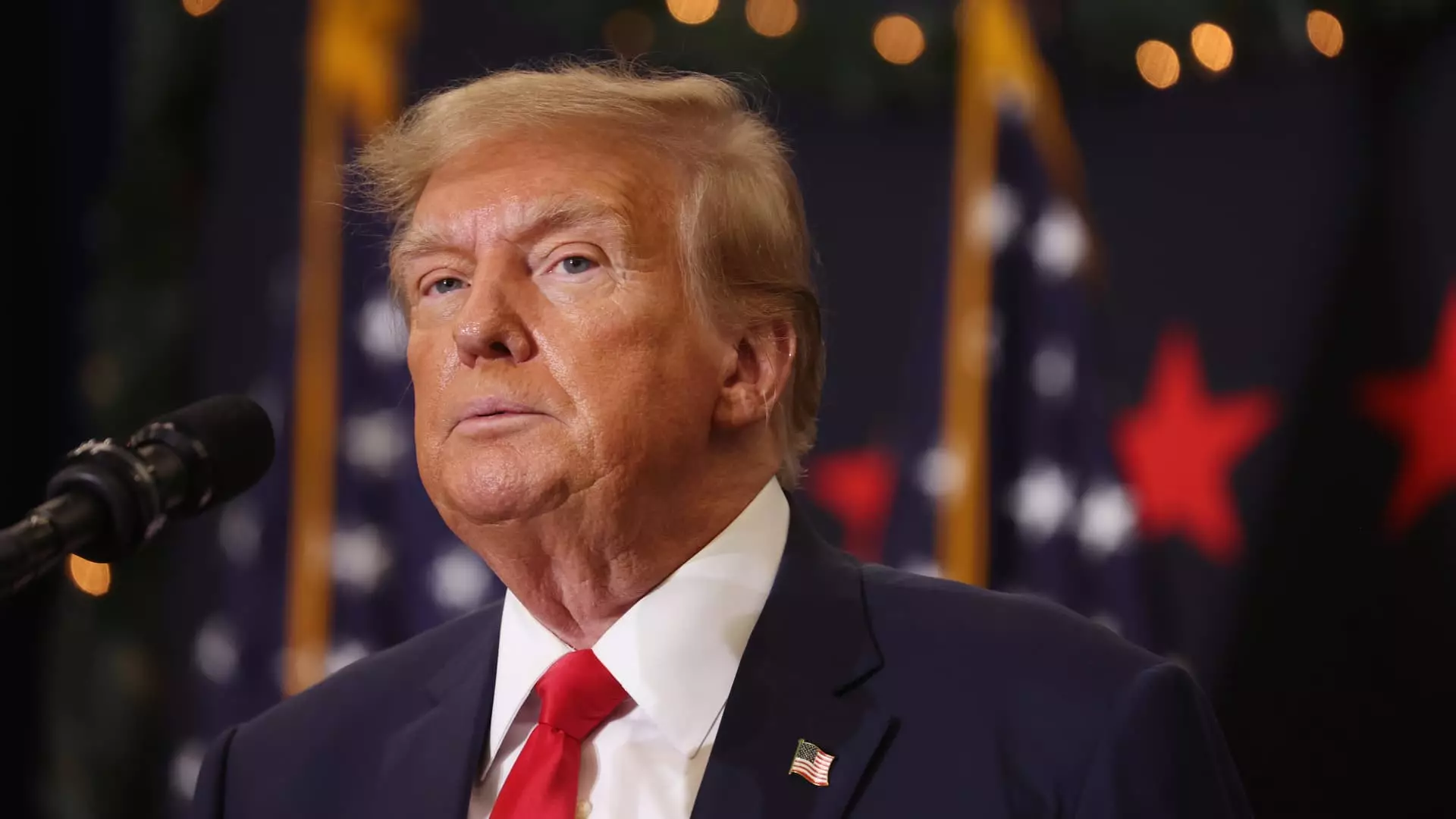Donald Trump and his lawyers have once again ignited controversy by arguing that he is immune from prosecution for his alleged involvement in the 2020 election fraud. This argument comes as Trump faces a four-count indictment, making him the first former president in history to face such charges. The implications of this case are profound, with Trump’s lawyers claiming that it could have a lasting impact on the confidence of American citizens in the judicial system. However, upon closer analysis, it becomes clear that these claims of immunity are flawed and lack a solid legal foundation.
Trump’s legal team argues that the “historical fallout is tremendous” if the indictment proceeds, warning of cycles of recrimination and politically motivated prosecution. They claim that this would undermine the very foundation of the United States’ democratic system. While concerns about the long-term consequences are understandable, it is essential to recognize that no individual, including the President, is above the law. Immunity from prosecution would set a dangerous precedent, suggesting a two-tiered justice system that favors those in power. This goes against the principles of equality and accountability that are fundamental to a functioning democracy.
At the heart of the dispute is whether Trump’s actions can be deemed as official acts falling within the outer perimeter of a president’s duties and responsibilities. Trump’s lawyers assert that urging the investigation of voter fraud and expressing concerns about irregularities are quintessential presidential acts. They argue that these actions should protect him from prosecution. However, this defense fails to acknowledge the context and intent behind Trump’s behavior. While investigating claims of fraud is a legitimate concern, Trump’s unwavering commitment to overturning the election results, even after numerous court rulings and investigations found no evidence of widespread fraud, undermines the credibility of his actions.
Judge Tanya Chutkan, who rejected Trump’s claim of immunity, rightfully pointed out that the office of the presidency does not confer a lifelong “get-out-of-jail-free” pass. This statement holds significant weight, highlighting the importance of accountability and the rule of law for all citizens, regardless of their status. Trump’s lawyers’ argument that he cannot be prosecuted for conduct for which he was already impeached raises concerns about the potential abuse of power. It sets a dangerous precedent, suggesting that impeachment serves as a shield against criminal prosecution, which undermines the checks and balances established in the Constitution.
With the Supreme Court rejecting a request to fast-track a decision on Trump’s immunity, the appeals court now takes center stage in this legal battle. A three-judge panel will determine whether to affirm or overrule Judge Chutkan’s earlier decision. It is crucial for the appeals court to carefully consider the implications of granting immunity to a former president. Doing so risks undermining the foundations of democracy and weakening the trust that citizens place in the judicial system.
Federal prosecutors argue that Trump’s actions after the election, including pressurizing Vice President Mike Pence and organizing fake electors in battleground states, constitute criminal behavior aimed at disrupting the electoral process. Trump’s lawyers maintain that these actions were intended to defend the integrity of the election. However, the overwhelming evidence, including statements from Trump’s own attorney general and other government officials, does not support his claims of widespread fraud. Courts across the country have consistently rejected allegations of election irregularities, further weakening the defense’s argument.
Trump’s claims of immunity from prosecution for his alleged involvement in the 2020 election fraud lack a solid legal foundation. Granting immunity to a former president sets a dangerous precedent and undermines the principles of equality, accountability, and the rule of law. The appeals court now faces the critical task of deciding whether to uphold the decision rejecting Trump’s immunity claim. The outcome of this case will have far-reaching implications for the future of American democracy and the faith citizens place in their judicial system.

Leave a Reply